Horse Jockeys: Facts, Weight, Size, Salary, and Training
What is a Horse Jockey?
A horse jockey rides horses professionally as part of various horse racing events and tournaments. As trained athletes with a special skill set, horse jockeys can control horses differently depending on the discipline they’re involved in. In all cases, horse jockeys possess qualities such as strength, precision, and control.
There are flat jockeys and jump jockeys, for example, and each requires a specific amount of attributes. All jockeys, male or female, maintain an enviable level of physical fitness that corresponds with the mindset they must possess as well to endure and possibly defeat the competition.
 What Does a Jockey Do in Horse Racing?
What Does a Jockey Do in Horse Racing?
Horse jockeys do a lot more than just ride horses. Riding in races is just part of their tasks as professionals. To be competitive and successful, a horse jockey needs to
- Study the competition and the track or course in order to outline a strategy
- Choose the right form, pace, positioning, and other specifics related to the horse, track, and event
- Communicate with the trainers and horse owners to avoid mistakes and work for the best bond with the racehorse
- Stay in the best possible shape by maintaining the perfect weight and exercising regularly
- Confirm all regulations and rules with racing officials and authorities to ensure the best results
- Focus on evaluating the performance post-race and analyze the results for further improvement
What is a Horse Jockey Called?
Horse jockeys are most often referred to as jockeys, jocks, horse riders, or just riders but the media often refers to them as equestrians. This is a broader definition that’s not limited to horse jockeys alone. “Horse riders” is the most accurate synonym.
What's the Difference Between a Jockey and an Exercise Rider?
Exercise riders are appointed to take horses out early before a race to warm them up and help them get used to a track or a course. They are an important part of every winning horse racing equation because they know how to exercise a horse without reaching any limits and keep the right pace throughout the session. Plus, they allow jockeys to keep their strength for the actual race.
Although they’re not compensated as well as horse jockeys (who often get 10% of the winnings or more), exercise riders gain valuable experience by getting to know how to keep up with different horses which eventually helps some of them become professional riders.
How Much Do Horse Jockeys Weigh?
Horse jockey weight limits are always extremely strict for a good reason. Weight requirements ensure that every horse competing in the race is fairly matched to race against one another. Of course, it also helps the horse to be able to race faster when they’re carrying lighter weight.
On average, male horse jockeys weigh 113 lbs. while female horse jockeys weigh 107 lbs. The actual average horse jockey weight is on the lower side although race requirements range up to 126 lbs. because the weight has to include an average 6-7 lbs. of horse gear. For example, the maximum weight at the Kentucky Derby race is 126 lbs., but when you factor in 6-7 lbs. of tack, that means that the jockey can weigh a maximum of 118-119 lbs.
 What is the Average Jockey Weight?
What is the Average Jockey Weight?
While there is no height limit for jockeys, you can probably imagine that with such extreme weight restrictions – most jockeys are fairly small in stature as well. The average jockey height is 5’2”. It would likely be impossible for a much taller person to weigh in so low and still have ample stamina to race their horse well.
Why is There a Weight Limit for Jockeys?
Racehorses can only carry a specific weight and that’s the reason why there are weight limits for jockeys. Their weight is measured before and after a race. This includes not only body weight but also the saddle and the rest of the kit they need to compete. If the pre-race weigh-in shows the combined weight of the rider and all the gear is below the desired goal, lead weights are added to achieve the right number.
Although this may seem a bit too strict of a requirement, it could greatly affect the horse’s performance. It’s also a guarantee that all horses carry the same weight, meaning they’re equally matched. This is the primary reason why trainers prefer jockeys to stick to their optimum weight, down to the pound. It’s the proper way to allocate weight without additional weights.
Why are Horse Jockeys Weighed Before and After a Race?
The practice of weighing out and weighing in is an easy method to guarantee fairness and accountability. Weighing out in the racing world refers to the initial weigh-in that occurs before the race. Weighing in refers to the post-race weight check. Before participating on race day, jockeys have to weigh in with their horse with the clerk of scales. After the races, weight measurement is taken again to ensure that the horse carries their reported weight throughout the race.
What is Considered Overweight for a Jockey?
Since it’s crucially important for horse jockeys to stick around a desired weight level, it’s easy for them to become overweight. It only takes a couple of pounds to cross this line - horse jockeys weighing 125 lbs. can be considered overweight. This depends on the racing jurisdiction and discipline, of course. Still, the consequences may be too important not to miss, starting with poor performance and lower competitiveness.
How Big is the Biggest Horse Jockey
The largest horse jockey on record to compete is Manute Bol. Manute, a former NBA player, stood at 7’7” tall. He weighed in right at 200 lbs. The weight requirement was not in place in this case, as Manute raced for a charity event.
How Small is the Smallest Horse Jockey?
William (Bill) Shoemaker was an American Jockey who stood at 4’11” and weighed in at 91 lbs., meaning that he was over 20 lbs. below the average jockey weight. Bill raced in the Kentucky Derby 24 times and won 4 of the events.
How Do Horse Jockeys Stay So Small?
Horse jockeys are athletes boasting incredible fitness but it takes more than just athleticism to excel in one’s jockey career. Other key traits include discipline and consistency outside of the race. Jockeys have to work full-time to keep their weight down and always be race-ready.
Similarly to sports like wrestling and boxing, having a set weight cut off can result in disordered eating behaviors. An anonymous study conducted in Australia found that 75% of horse jockeys skip meals on a routine basis, and 22% of jockeys admitted to using diuretics.
Being a horse jockey is not for the faint of heart. If you don’t meet weight requirements - you don’t get to race, which means that neither you nor the racehorse owner have the chance of making any money. There is a lot of pressure in the jockey world because livelihoods are at stake. For many years, there have been a few commonly practiced methods to help horse jockeys control their weight and make sure they are eligible to enter any competition they should participate in.
Diet & Exercise
Jockeys have to stick to a regimented diet and exercise plan in order to stay in peak physical condition at all times. Victor Espinoza, a Hall of Fame jockey, says that he avoids alcohol and soda. He doesn't restrict anything when it comes to food, however, he eats only one meal a day and eats small portions. In addition, he has a scheduled and planned 5-day-a-week exercise routine.
Hot Baths
For jockeys, taking long hot baths or spending time in the hot tub right before a race isn’t merely a form of self-care. Studies related to passive heating and heat shock proteins show that taking hot baths can burn up to 140 calories per hour. In addition, hot baths can reduce inflammation which can cause the body to hold on to excess fat.
Saunas
Sweating it out in the sauna is not an uncommon method of shedding a couple of stubborn pounds. Although the weight loss will be strictly water weight, every pound counts when it comes to racing. This is the reason many jockeys utilize saunas when they approach races.
Laxatives
Both laxatives and diuretics were both commonly utilized in the horse jockey world. However, in 1998, horse racing’s governing body, the Jockey Club, banned both of these substances due to their negative health effects.
 What is the Average Size of a Horse Jockey?
What is the Average Size of a Horse Jockey?
Horse jockeys’ typical height and weight vary depending on the disciplines they participate in. As mentioned on the Jockey Club website, jump jockeys are typically heavier than flat jockeys because the former need extra stamina and more strength to overcome the course obstacles while the lower weight of the latter allows for the required greater speed.
Statistical data such as studies and comparisons posted on the Research Gate website show that male horse jockeys weigh between 108 and 118 lbs. while female horse jockeys’ average weight ranges between 104 and 114 lbs.
What is the Average Height of a Jockey?
Tall people would find it challenging to find the ultimate riding pose, hence why most of them are not taller than 5’6″, regardless of where they are located across the globe. Such a height would allow jockeys to ride equally matched horses anywhere in the world and be as competitive as possible.
Is There a Height Limit for Jockeys?
While there are strict weight limits for horse jockeys, there are no height limitations whatsoever. Still, most jockeys are fairly short. Height-wise, men in this sport are typically 5’2″ to 5’6″ and women’s height ranges between 5’0″ to 5’5″.
Who Are the Tallest Jockeys in History?
The 7’7”-tall Manute Bol is not the only exceptionally tall horse jockey in history. Other examples include
- Patrick Sankey, 6’7”: He was an amateur horse rider who wanted something more despite his bigger-than-average height and weight. His determination eventually resulted in success, such as a win achieved at the 2019 Bredwardine Point-to-Point.
- Jack Andrews, 6’4”: As the highest horse rider at the moment, Jack not only boasts an impressive career despite his size but also takes pride in 40+ wins throughout his path as an amateur and professional jockey.
Who Are the Shortest Jockeys in History?
Bill Shoemaker was surely the shortest jockey in history at 4’11” but there are other athletes who were not much taller than him:
- Kenneth Glover, 4’0”: This almost mythical figure from the 1950s was reportedly the shortest horse rider of all time with a height that was far less than Shoemaker’s. He was 15 when he began riding horses and was 4’ high at the time.
- Frankie Dettori, 5’0”: While there are some other popular and slightly shorter jockeys in history, Dettori is below the average height but that didn’t stop him from having a remarkable career with plenty of impressive wins on his account.
How Much Do Horse Jockeys Earn?
Horse jockeys’ salaries vary greatly, depending on the scale of the race and the percentage of the amounts won they’re granted by the racehorse owner. On average, jockeys receive around 10% of the winnings from owners. Their exact compensation is most often based on two payments: 8,5% of prize money and a smaller chunk of the place prize. Jump jockeys receive slightly more than flat jockeys.
What is the Average Horse Jockey Salary?
According to labor statistics, the median horse jockey salary in the United States is less than $50,000 ($48,880). Based on information published on the EquiBase website, the top five earners in the horse jockeys world in 2024 have earned more than $25 million each.
How Do Jockeys Get Paid?
However, jockeys typically only get paid if they win a race. Also, they sometimes need to pay their agents (up to 30% of their cut) and about 5% go to the valet responsible for preparing the horse and gear. Still, they have other possible sources of income apart from winning, such as retainer contracts and sponsorships.
Who is the Richest Jockey in the World?
The richest jockey in the world, Japan’s Yutaka Take, earned over $970 million during his career. As mentioned on the World of Horses website, he has over 4,500 race wins on his account - a truly remarkable achievement that makes him not only the wealthiest but also the most successful jockey in history.
Horse racing is huge in Japan, which is why the rest of the richest horse jockeys are also Japanese - Norihiro Yokoyama ($880+ million), Yuichi Fukunaga ($500+ million), and Masayoshi Ebina (approximately $500 million).
Do Jockeys Get Paid if They Don't Win?
Yes, jockeys can earn money even if they don’t win. It all depends on the scale and type of the event. Rules may state that several places will be paid. Horse jockeys receive a small portion of the advertised place price in such cases.
 How Do You Become a Horse Jockey?
How Do You Become a Horse Jockey?
Professional jockeys with thousands of wins amass whopping amounts of money but that’s not the only reason to become one. The love for horses and everything equestrian should be the primary motivation. If you want to become one, you have to go through special training and comply with all requirements and regulations.
What Training is Required to Become a Jockey?
Complete novices in this field need extensive training. The right course, apprenticeship program, and riding school depend on the current goals and skills. For instance, you opt for an amateur rider permit, pre-season training, or a racehorse rider course.
Courses typically involve a broad spectrum of theory and practice, including riding work, nutrition and weight balance, pivotal schooling practices, racing rules, regulations, and requirements, riding styles, and sports science.
How Old Do You Have to Be to Become a Jockey?
Most countries require people to complete apprenticeship programs in order to become licensed horse jockeys, and one of the main requirements is age-related. You need to be at least 16 years old to become a horse jockey in the United States, the United Kingdom, Canada, Japan, France, Hong Kong, and many other countries. There are exceptions such as Australia where 15-year-old people can become horse jockeys as well.
What are the Licensing Requirements for Jockeys?
The licensing requirements for jockeys include not only the minimum legal age but also a successful completion of the aforementioned apprentice program under the guidance of licensed trainers. Next, aspiring jockeys need to receive their first license from their local state racing commission. Every state has one, and their specific rules may vary. In general, they have several requirements, including a fitness test, assessment of riding skills, theoretical knowledge, and a background check.
What Disqualifies You From Being a Jockey?
Considering the requirements of every state commission and the Horseracing Integrity and Safety Authority (HISA), there are several reasons why you could be disqualified from becoming a horse jockey:
- Medical requirements: Physical disabilities, chronic illnesses, and certain conditions can be a major reason why this would not be possible. Arthritis, epilepsy, poor vision, and other examples apply.
- Fitness requirements: Not meeting the weight requirements and lacking enough upper body strength and stamina can be another huge obstacle.
- Legal requirements: Not meeting the minimum required age or having a previous record containing felony convictions are obstacles that cannot be undone.
- Licensing requirements: Not being able to complete the training course or being involved in parallel unlicensed horse riding activity will lead to a denied license application.
Horse Jockey Gear and Equipment
Understanding the requirements related to becoming a horse jockey also means that you should learn all about the obligatory set of horse jockey gear and the equipment needed to compete in a race and prepare for it the right way.
What are Jockey Silks?
Jockey silks are the bright-colored jackets that are worn during races. These unique jackets are designed to allow spectators to easily differentiate horses and riders during the race. Jockey silks, also known as racing colors, have been used ever since the 1800s when they started becoming popular in England. They were later adopted by the American Jockey Club (established in 1894).
What Kind of Whips Do Jockeys Use?
Whips in horse racing have evolved quite a lot over the years. Also known as riding crops, modern whips are designed to be safe and aligned with all efforts targeted at horse welfare. They are shorter than what they used to be back in the day, and they’re also far softer which emphasizes their use for encouragement instead of punishment. The new materials used for these whips include fiber composites, making them strong and durable.
What Safety Equipment Do Jockeys Wear?
Since horse racing is a high-risk sport, jockeys wear several obligatory pieces of equipment designed to ensure their safety. The most important bit is the helmet, which must be approved by the Horseracing Integrity and Safety Authority (HISA) or any other country, depending on the origin of the rider or the location of the race. Modern helmets feature adjustable chin straps and comprise lightweight but impact-resistant materials.
The safety vest used for body protection is another key part of the safety equipment horse jockeys use. It’s made from shock-absorbing foam and it’s obligatory to use in professional competitions. The specific riding boots made for racing, the goggles, and the grippy gloves complete the safety ensemble of a professional horse jockey.
Are There Female Horse Jockeys?
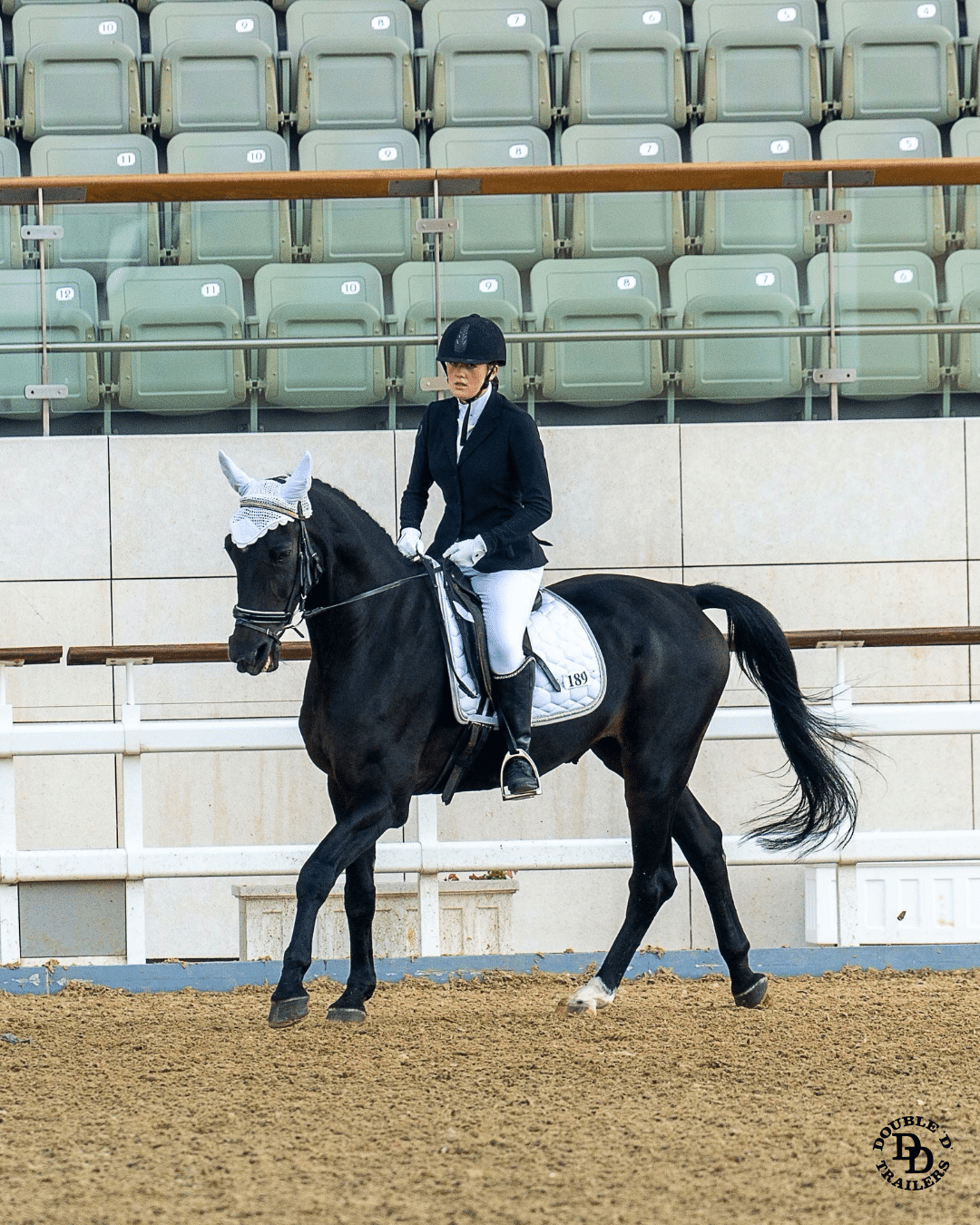
Who Was the First Female Jockey?
Diane Crump was the first professional female horse jockey. The historic competition she participated in was on February 7, 1969, at Hialeah Park (Florida). A year later, in 1970, she won her first stakes race. That same year, Crump also became the first woman to enter the Kentucky Derby.
Who is the Most Famous Female Jockey?
Many female horse jockeys have gained legendary status, but the most famous among them are
- Julie Krone (USA): With 3,700+ career wins and a well-deserved place in the National Museum of Racing Hall of Fame, Krone is the most famous of them all.
- Rachael Blackmore (Ireland): Blackmore is still competing and she is likely to add a lot more to her 800+ wins. Blackmore was the first professional female rider to win the Grand National (2021).
- Hollie Doyle (UK): Doyle is a record-setter - she scored the highest number of wins in a single season (151 wins in 2020. She has also managed to earn a spot among the top 3 athletes in the British Jockeys' Championship.
Has a female jockey ever competed in the Kentucky Derby?
Diane Crump was the first woman to compete as a jockey in the Kentucky Derby race. This happened on May 2, 1970, and her 15th position overall was an impressive achievement considering that, at the time, she had to go through a tough time to even enter the race, not to mention compete in it.
Has a female jockey ever won the Triple Crown?
Julie Krone is the first woman to win a Triple Crown race - this achievement was accomplished during the 1993 Belmont Stakes. Things are changing, though - in Australia, for instance, roughly half of all apprentice jockeys are women.
5 Interesting Facts About Horse Jockeys You May Not Know
#1: Jockeys Make Racehorses Go Faster
Studies show that a jockey's posture improves horse race times by 5-7%. Jockeys use a crouched position and strategic leg movements to assist the horse in moving faster. Some jockeys use whips during their races, however, there are clear rules that they must follow to abide by equine welfare regulations.
#2: No Bets Allowed
Horse jockeys are not allowed to place bets. Not only can jockeys not bet on a race that they are part of but they can’t bet on any horse race at all. This is a controversial rule, and the reasoning behind it is that jockeys are too close to the sport and have inside competitor information.
#3: Being a Horse Jockey is Dangerous
Since 1950, more than a hundred jockeys have died as a result of racing incidents. In addition, upwards of 40 have been permanently disabled due to spinal injuries that occurred while racing. Statistics have shown that the overall number of deaths in the sport has decreased since 1980. As with any sport, there are physical risks associated with participating.
#4: Most Jockeys are Under 40
Being a horse jockey is typically not a sport that allows you to keep participating as you age. As we get older, we lose muscle mass and agility and gain weight easier. Due to the extreme physical nature of the sport, there is rarely a successful horse jockey in the industry who’s over the age of 40.
#5: There are Two Types of Jockeys
In most cases, horse jockeys only compete in one type of race: either flat or jump racing. There are different weight requirements for both of these races. Jump jockeys are generally taller and weigh more, while flat jockeys weigh less and are usually shorter.
Frequently Asked Questions About Horse Jockeys
How are jockeys chosen?
Horse jockeys hire agents that are responsible for booking races for them.
How fast do horse jockeys go?
At peak speeds, horse jockeys travel with their racehorse upwards of 40 MPH.
Do jockeys own their horses?
No, jockeys are not allowed to own the horses that they compete with.
Can a horse win the race if the jockey falls off?
No, a horse cannot win a race with no jockey.
The Vital Role of Racehorses in a Jockey's Career
The skills, preparation, and experience of a horse jockey do not guarantee success, as a key element of the winning equation is the racehorse, alongside the relationship and communication between horse and jockey.
How Does Horse Quality Impact Jockey Success?
Horses’ attributes are a big deal and can determine the outcome of a race. It all starts with possible genetic advantages as the result of breeding. A long, successful bloodline guarantees perfect stamina, durability, agility, and speed. Horse jockeys can control and communicate with a well-bred horse with ease, taking advantage of their natural ability to get the job done. Other horse perks that help jockeys be competitive include horses’ temperament, proper training, and conditioning,
Why is Racehorse Well-Being Essential for Jockeys?
Today’s equestrian world is incredibly humane compared to decades and centuries ago. Racehorse well-being is a primary concern, and it’s also something that’s essential for jockeys. The reasons are obvious: a well-cared-for, healthy, and happy horse would always benefit from a lower risk of injuries which could be devastating for both the horse, the owner, and the rider, not to mention costly and lengthy to overcome.
Horse well-being also increases performance, as a fit and well-taken care of horse would be in top shape at all times. Let’s not forget the mental state of horses: when they’re properly looked after and treated with the utmost care and respect, jockeys can enjoy the maximum of their abilities on the track.
How are Racehorses Transported Between Races?
Since we mentioned horses’ well-being before, during, and after a race, a key component of it that’s sometimes neglected is proper transportation. To be race-ready and in perfect physical and mental form, a racehorse should be hauled in a safe, healthy, and comfortable environment that also minimizes the risk of injuries and health symptoms. Since most horses are hauled on the road (although air travel is an option, especially for intercontinental events), this would always be a “mission impossible” without a high-quality horse trailer and knowing how to ensure safe travels.
Ensuring the Safety and Well-Being of Racehorses During Transport
There are fundamentals and best practices when it comes to racehorse transport, and it all starts with utilizing a safe and comfortable horse trailer towed by the right vehicle capable of handling the load.
Why is Proper Transportation Crucial for Racehorses?
Studies and research on the transportation of horses and their welfare, such as the shared information on the Kentucky Equine Research suggest that horse transportation poses a lot of dangers for horses when not done right, such as general stress due to various factors, physical injuries, fatigue, dehydration, and more. All of these risks can be minimized or completely eliminated by using well-designed horse trailers equipped with the right features.
Key Features of High-Quality Horse Trailers
High-quality horse trailers boast several crucial advantages that allow horses to safely and comfortably endure transportation and arrive at any event in peak physical and mental condition. Some of the must-have perks include:
- Well-thought design throughout: Easy, unobstructed access for horses, spacious stalls, sturdy interior dividers providing both visibility and protection, side doors and ramps, various loading and unloading patterns and transportation layouts (forward and rear-facing, ideally slant-load)
- Bright, airy, well-ventilated, and illuminated interior with large windows that’s welcoming for horses thanks to the abundance of natural light and the freedom of movement they have
- Non-slip floors and ramps that can carry horses’ weight with ease and provide a durable, rust-resistant, and long-lasting foundation
- Safe double-layer walls with additional padding to protect horses from light injuries when traveling
Key Features of High-Quality Horse Trailers
High-quality horse trailers boast several crucial advantages that allow horses to safely and comfortably endure transportation and arrive at any event in peak physical and mental condition. Some of the must-have perks include:
- Well-thought design throughout: Easy, unobstructed access for horses, spacious stalls, sturdy interior dividers providing both visibility and protection, side doors and ramps, various loading and unloading patterns and transportation layouts (forward and rear-facing, ideally slant-load)
- Bright, airy, well-ventilated, and illuminated interior with large windows that’s welcoming for horses thanks to the abundance of natural light and the freedom of movement they have
- Non-slip floors and ramps that can carry horses’ weight with ease and provide a durable, rust-resistant, and long-lasting foundation
- Safe double-layer walls with additional padding to protect horses from light injuries when traveling
Want to learn more about how these features transfer into a safer and more comfortable ride for your horses? We're happy to answer your questions and share insights on optimal horse trailer design.

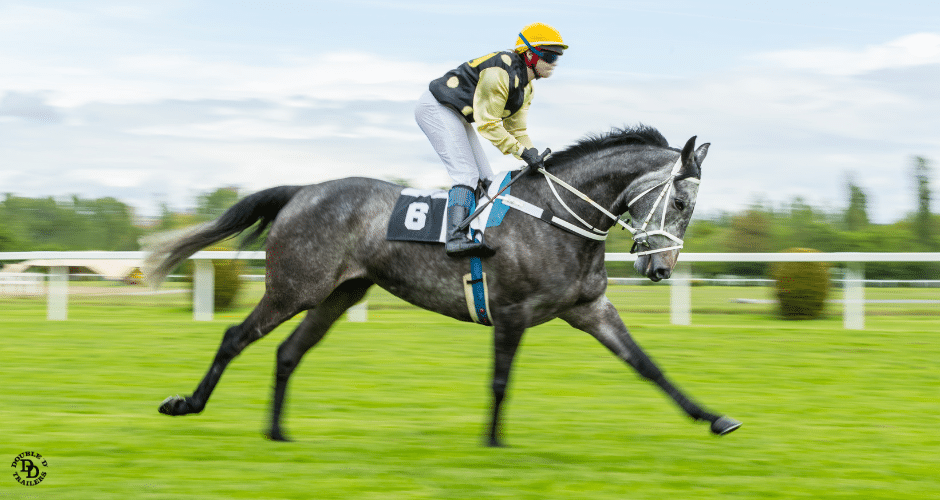 What Does a Jockey Do in Horse Racing?
What Does a Jockey Do in Horse Racing?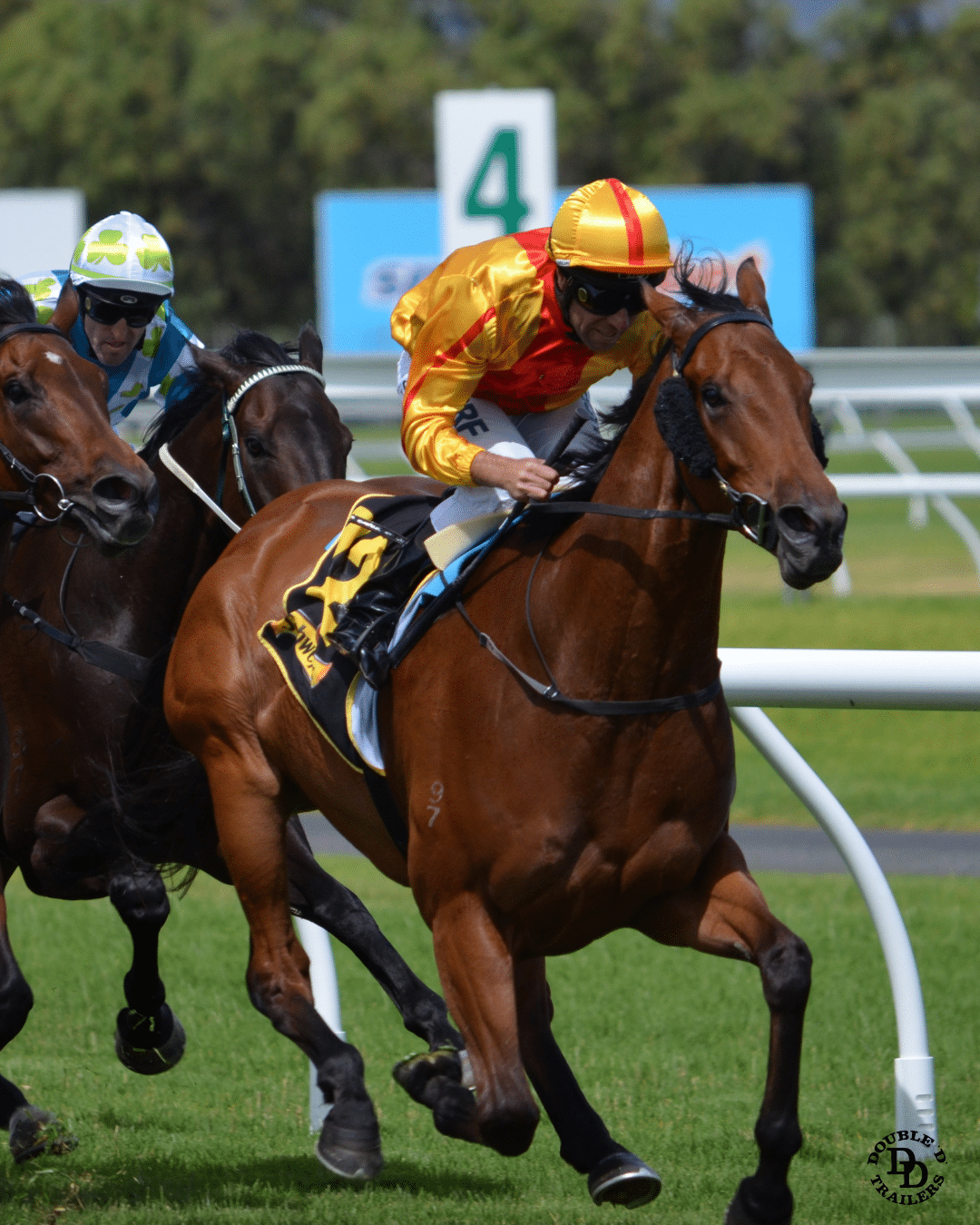 What is the Average Jockey Weight?
What is the Average Jockey Weight?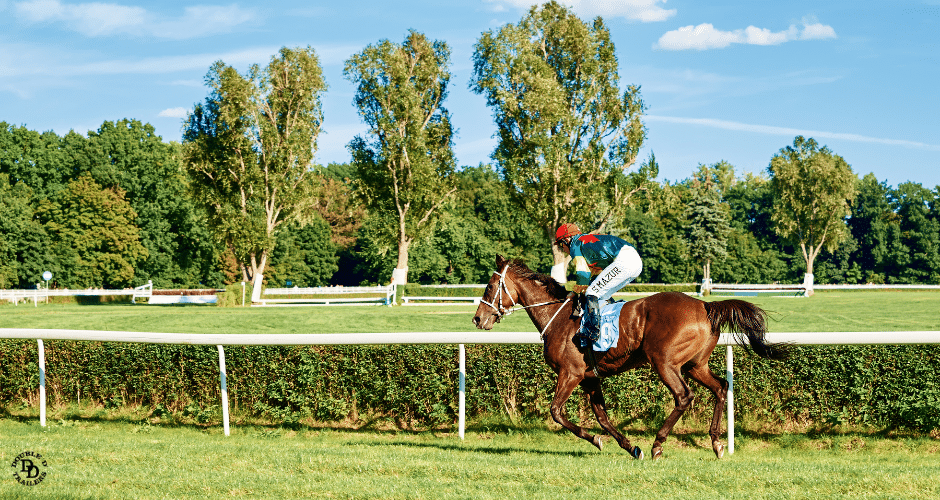 What is the Average Size of a Horse Jockey?
What is the Average Size of a Horse Jockey?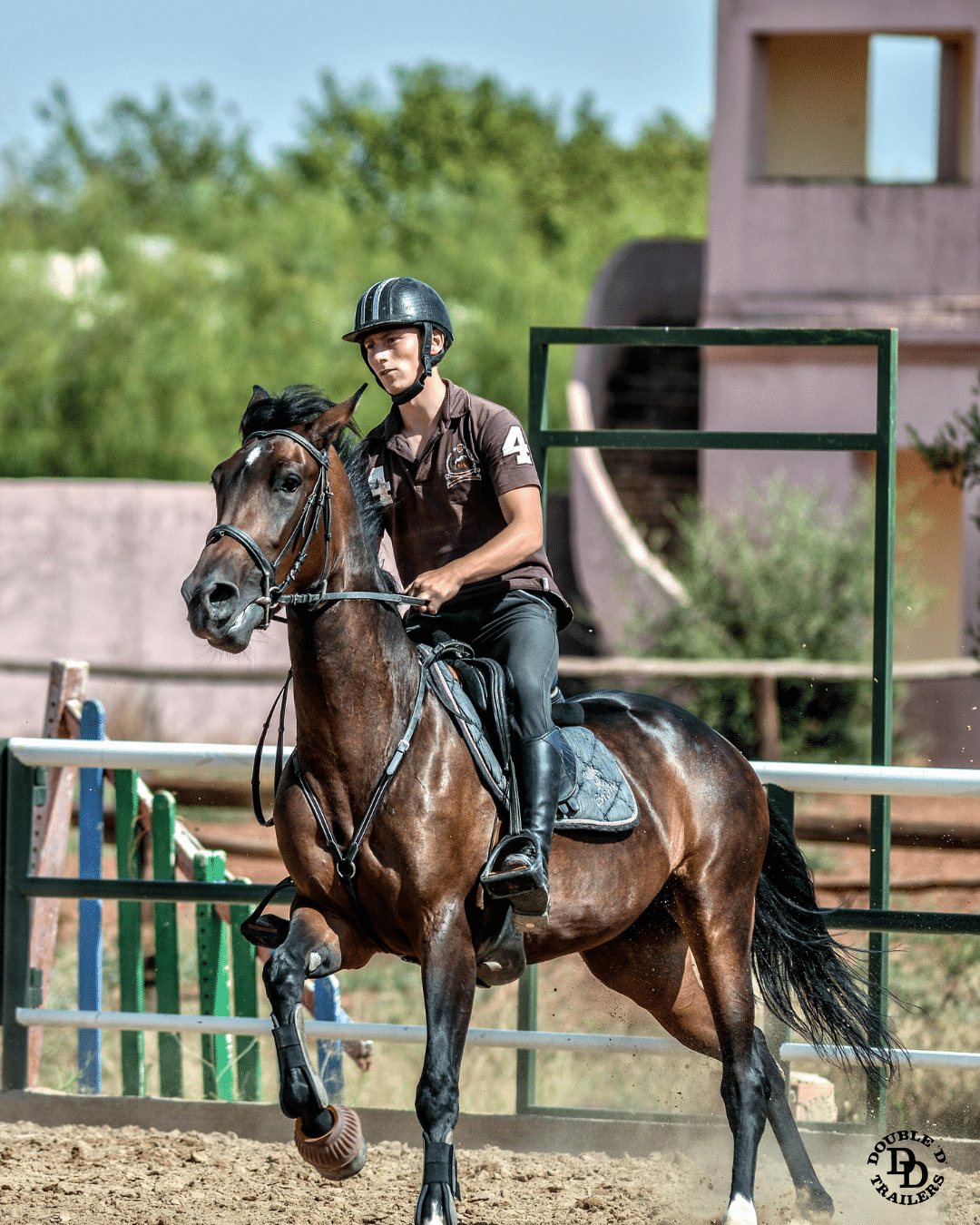 How Do You Become a Horse Jockey?
How Do You Become a Horse Jockey?